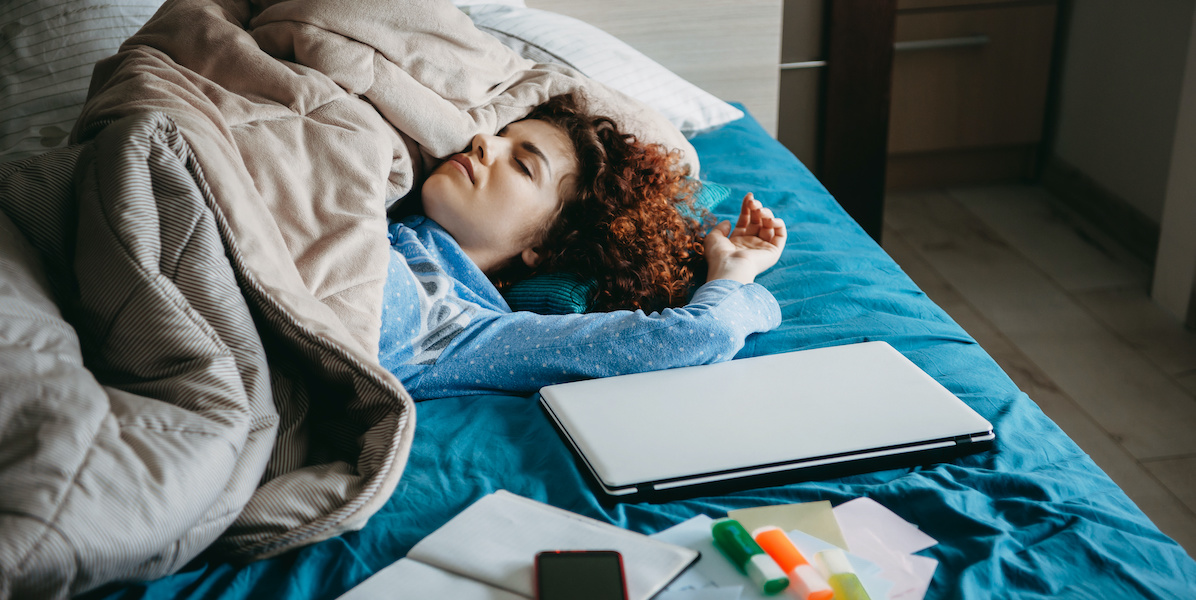
*The following is excerpted from an online article posted on ScienceDaily.
Sleep patterns around the world have been disrupted as screen time increases and sleep routines change with COVID-19 self-isolation requirements.
Negative mood is not unusual in adolescence, but lack of sleep can affect mental health, causing anhedonia (or loss of pleasure), anxiety, anger and significantly increasing the risk of depression, a global study of more than 350,000 teens shows.
The results published in Sleep Medicine Reviews connects less sleep with a 55% increased chance of mood deficits and double the risk of reduced positive mood.
From Asia to Australia, New Zealand, Europe, and North America, sleep clearly was a modifiable risk factor that can improve or depress mood in adolescents, says Flinders University sleep researcher Dr. Michelle Short.
“Sleep duration significantly predicts mood deficits on all mood states, including increased depression, anxiety, anger, negative affect, and reduced positive affect,” she says, with less sleep linked to an 83% higher chance or anger, 62% increased risk of depressed mood, and 41% higher risk of anxiety.
“Fortunately, there are many interventions individuals, family, the community and even public policy can encourage to maintain regular sleep in this at-risk population to reduce the likelihood of these problems spilling over into mental health issues needing clinical treatment,” she says.
Source: ScienceDaily
https://www.sciencedaily.com/releases/2020/05/200505093127.htm

 Extra Sleep Boosts Teen Brain Power
Extra Sleep Boosts Teen Brain Power  Teen Loneliness Triggers ‘Reward Seeking’ Behavior
Teen Loneliness Triggers ‘Reward Seeking’ Behavior  What’s Hot? 09/12/25
What’s Hot? 09/12/25